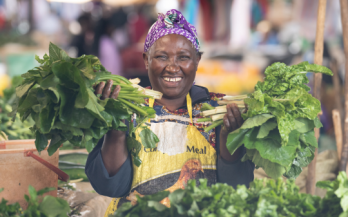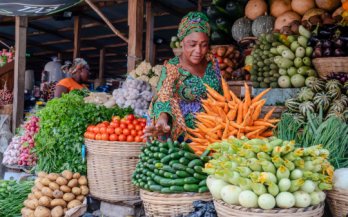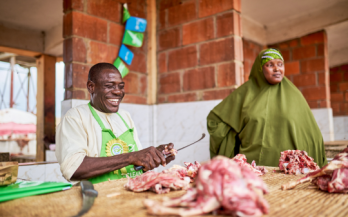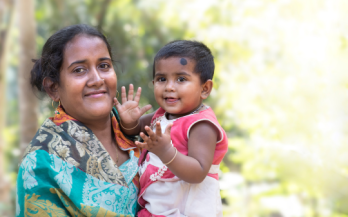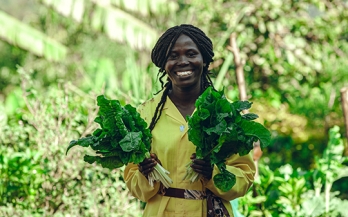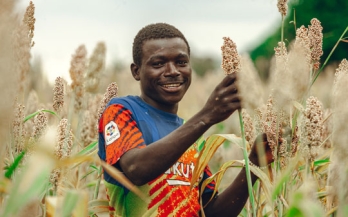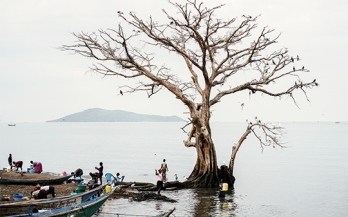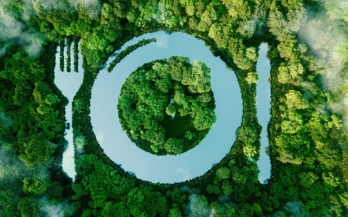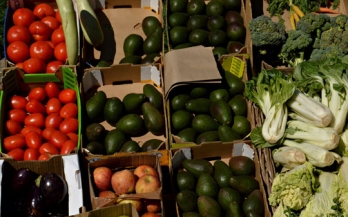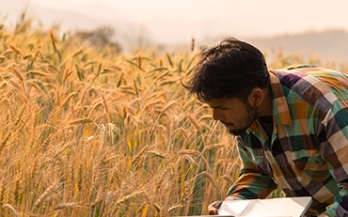Serving the needs of lower-income consumers requires getting food products to where they are—which often includes remote rural areas as well as underserved urban neighbourhoods. This makes distribution a key, but also costly, aspect of the business model. Using a ‘hub’ model, in which aspects of distribution are grouped together instead of done separately, can improve efficiency and cost-sharing, reducing costs overall.
Final distribution to the consumer is a key challenge in addressing affordability for lower-income consumers, particularly in rural and remote areas or crowded lower-income urban neighbourhoods. One way to address this, particularly in places where there are few existing retail outlets, is through creation of a bespoke last-mile distribution (LMD) network. Creating such a network involves recruiting and training distribution/sales agents; equipping them for the job; and providing them with appropriate pay, incentives, and supervision. The agents can be employees, contactors, or micro-franchisees and can sell on foot, bike, using a pushcart or adapted motorcycle, from their homes, or through stalls.
We expect to be eating peanuts, not extreme amounts of aflatoxins, and chicken but not E. coli. We expect that our salads are washed with clean water, and that the person who prepared the salad first washed their hands. We cannot, however, always assume the expected and thus need to be ready for the unexpected. Unexpected events can take the form of natural disasters, such as earthquakes or floods. They might also come from power cuts or amid sudden political change. Such events can disrupt food availability, accessibility and safety, leaving us exposed to increased levels of unsafe food.
Every year, the voices and discourses on gender equality and women’s rights become loudest around International Women’s Day (March 8th). The rest of the year, women’s voices are seldom heard and considered, especially in corridors of power. Men and women have distinct needs, and there are intersecting vulnerabilities such as poverty levels, ethnic affiliation, age, and disabilities which further limit women’s voices. However, the voices of women must be systematically and consistently included in all conversations, at every stage, and on all topics, especially when it comes to policies.
Join us as we mark us mark International Women's Day celebrating the achievements of women around the world. We speak to some incredible female leaders around the world striving to #EmbraceEquity.
On the ninth of May, 2002 GAIN was founded with the aim of tackling human suffering caused by malnutrition. Over the past 20 years, GAIN has been working with governments, businesses, and civil society to transform for food systems so that they can deliver more nutritional food for all people, especially the most vulnerable.
Read our fourth story in the series on The Food Crisis: What's Happening, a collection of work on the current events and the impact communities are seeing on a global scale. The Food Crisis is affecting everyone socially, economically and nutritionally. Stella Nordhagen, our Senior Technical Specialist discusses the wide reaching ripple effect climate change will cause on our food systems and what actions need immediate attention.
COP27 was not the first time nutrition and climate have been mentioned in the same breath at a COP. That was in Paris in 2015 and no one really listened. Timing is everything and in Sharm El Sheik seven years later the timing was right.
In a joint article with One Acre Fund earlier this year, we called for greater attention to be paid to smallholder farmers, whose role is essential if we are to fulfil the needs of an ever-growing population – even in the face of climate change, economic turbulence, conflict, and the many other disruptions that lie ahead.
Read our first in the series on The Food Crisis: What's Happening, a collection of work on the current events and the impact we're seeing on a global scale. The Food Crisis is affecting everyone socially, economically and nutritionally. Jamie Morrison speaks about what areas need more attention and what actions need to be taken now.
